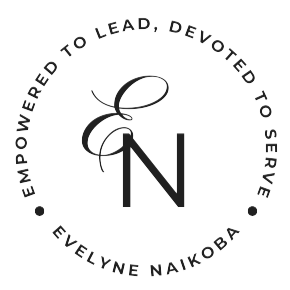Book Appointment Now

Relationships: Covenants, Not Contracts
In today’s world, relationships are often treated like contracts—conditional agreements based on what each person can give and take. Whether it’s romantic partnerships, friendships, or even family ties, the underlying message seems to be, If you hold up your end of the deal, I’ll hold up mine.
But what if relationships were never meant to operate this way? What if, instead of being mere transactions, they were sacred commitments? The truth is, relationships were designed to be covenants, not contracts. And understanding this difference can transform the way we love and connect.
Contracts vs. Covenants: What’s the Difference?
A contract is built on conditions. It’s an agreement where both parties have obligations. If one fails, the contract is broken. Contracts are about protecting oneself, setting boundaries, and ensuring fairness.
A covenant, on the other hand, is about unconditional commitment. It’s a promise made not based on circumstances but on love, trust, and faith. Covenants are rooted in selflessness, resilience, and a higher purpose.
While contracts say, I’ll stay as long as it benefits me, covenants declare, I’m here for the long haul, no matter what.
The Modern Contract Mentality
In the modern world, relationships often feel like a negotiation:
What can you offer me?
How much effort will you put in?
If you don’t meet my expectations, I’m out.
This approach fosters a fragile foundation, where love and loyalty hinge on performance. It’s no wonder so many relationships crumble under the weight of unmet expectations.
This mentality doesn’t just hurt romantic relationships—it spills over into friendships, family ties, and even workplace dynamics. It creates a culture of disposability, where people feel they must constantly prove their worth to stay in someone’s life.
The Covenant Mindset
Covenantal relationships, however, operate on a different plane. They are built on:
- Commitment Over Convenience: A covenant doesn’t waver when things get tough. It stands firm in the face of challenges, choosing unity over division.
- Grace Over Perfection: Covenants recognize that no one is perfect. They prioritize forgiveness and growth over fault-finding and blame.
- Service Over Selfishness: A covenant seeks to give rather than take, to nurture rather than demand. It’s about lifting the other person up, even when it requires personal sacrifice.
- Faith at the Center: Covenantal relationships draw strength from a higher power. They acknowledge that love is more than a feeling; it’s a divine calling.
Biblical Insights: Relationships as Covenants
The Bible provides the ultimate example of covenantal relationships. God’s relationship with humanity is not conditional or transactional—it’s a covenant of love, grace, and redemption.
In marriage, the covenantal promise is clear: “For better or worse, in sickness and in health, to love and to cherish, till death do us part.” This is not a contract that dissolves when things get hard; it’s a sacred vow to stand by one another through all seasons.
Even in friendships, the Bible speaks of covenant-like loyalty, as seen in David and Jonathan’s bond (1 Samuel 18:3-4). Their relationship was marked by unwavering commitment, even at great personal cost.
How to Build Covenant Relationships
If we want our relationships to thrive, we must shift from a contract mindset to a covenant mindset. Here’s how:
- Value Commitment Over Feelings
Feelings are fleeting, but commitment is enduring. Choose to honor your promises, even when emotions waver.
- Practice Radical Forgiveness
No one gets it right all the time. A covenant relationship thrives on grace, letting go of grudges, and prioritizing reconciliation.
- Invest in the Other Person’s Growth
Love means wanting the best for the other person, even when it’s inconvenient. Celebrate their victories, support their dreams, and encourage their journey.
- Invite God into the Relationship
A covenant is strongest when built on a foundation of faith. Pray together, seek wisdom from Scripture, and let God’s love guide your actions.
- Weather the Storms Together
Life will bring challenges, but covenant relationships see these as opportunities to grow closer, not drift apart. Stand firm, hand in hand, and face the storms together.
Why Covenants Matter Today
In a world that often prioritizes self-interest, covenantal relationships stand out as a powerful testimony to love’s true nature. They remind us that relationships are not about “winning” or “losing” but about building something enduring and sacred.
Covenants create a sense of safety, trust, and belonging. They say, You don’t have to be perfect to be loved here. I’m with you, no matter what.
The Legacy of Covenant Love
When we embrace covenant relationships, we leave a legacy of love that goes beyond ourselves. These relationships inspire others, strengthen families, and model God’s unchanging love.
So, let’s move away from treating relationships like contracts. Let’s embrace the beauty, depth, and sacredness of covenantal love. Because when we do, we create connections that truly reflect heaven on earth—a love that never fails, never gives up, and never lets go.



